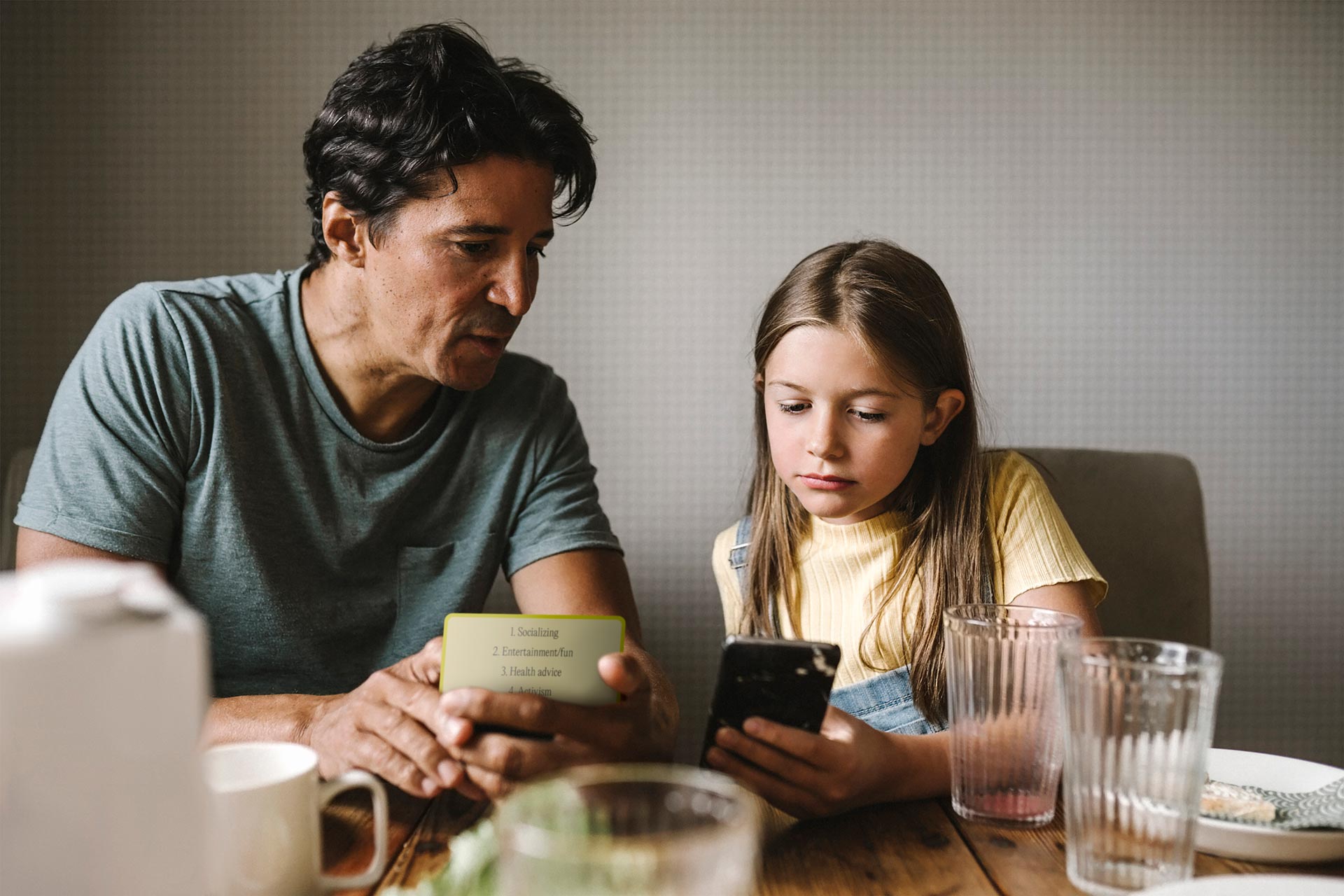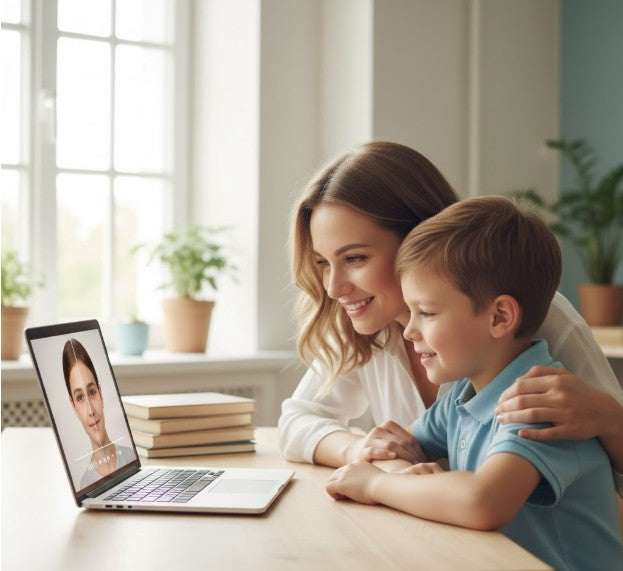“Keep it real” - how to be authentic with your child
There is no greater protection than honesty.
Many parents take for granted that kids learn about critical thinking skills at school. Things like how to interpret hidden ads or touched-up photos, and misleading promises or profiles, but this isn’t always the case.
Research firmly supports that open and honest conversations in the home are the best long-term protection. This is what the Raising Digital Citizens cards aim to facilitate.

These discussions are not about “telling” kids what’s right or wrong or scaring them. They are about exploring real situations, scenarios, and dilemmas, and simply navigating together what to do to create a strong moral compass calibrated with core values. Your family’s core values. This is something they don’t get in school.
So, in the same spirit that you have taught your kids to know what to look out for and how to be careful in real life, you need to do this in the digital world as well.
- Do they know how to identify strange messages and be careful with their personal information?
- Do they know that many images are filtered and photoshopped, and influencers are paid to advertise?
- Do they know how to set boundaries and be safe? Do they have a trusted adult they can go to if they need help?
You can read through the questions first and decide if there are topics you want to skip or filter out if they feel uncomfortable or not age-appropriate. You could decide to take these up at a later time when your child is older, but we encourage you to take them at some point.
Use the cards as an excuse and a tool to help talk about subjects you wouldn’t get to do otherwise.

Tips for authenticity in the digital world:
Be sincere, not judgey
Try to prepare yourself so that you can be open and sincere and not patronizing, moralistic, or judgmental. THIS IS SO IMPORTANT! This includes your tone and body language. Try to be cool, calm, and curious. Listen and contemplate what your child has to say.
Fear fosters fear, openness fosters closeness. If they tell you only what they think you want to hear this misses the point.
Breathe. Be patient. Remember that honest conversations and open communication are the very best protection. Fear fosters fear, and openness fosters closeness. If they tell you only what they think you want to hear, this misses the point.
Teach honesty
What are your family’s social, personal, moral, work, financial, health, and media values? These are good questions to think about before doing the cards, so you can be aware of what your big lines of parenting are. Make honesty a value and talk about how important it is.
Your child should know that they can always come to you (or another trusted adult) if something difficult ever happens, even if it’s something they think is wrong or you might be angry about. We all make mistakes. This is how we learn.
Be a good role model.
Be honest about yourself. Kids are amazing lie and hypocrite detectors. Answer these questions honestly and ask them regularly:
- Am I being a good role model?
- Am I respecting media-free zones?
- Am I asking for consent before posting photos of my kids?
We can’t expect our kids to respect rules if we don’t respect them ourselves.
Practice makes perfect
Look for hidden ads and product placement in movies together. Look out for fake news or phishing examples. Discuss how influencers have affected your child.
Anything you learn together in the cards, try to practice in everyday life when opportunities arise. The conversations are a starting point, but the discussions can continue in the meantime by looking out for real applications.





